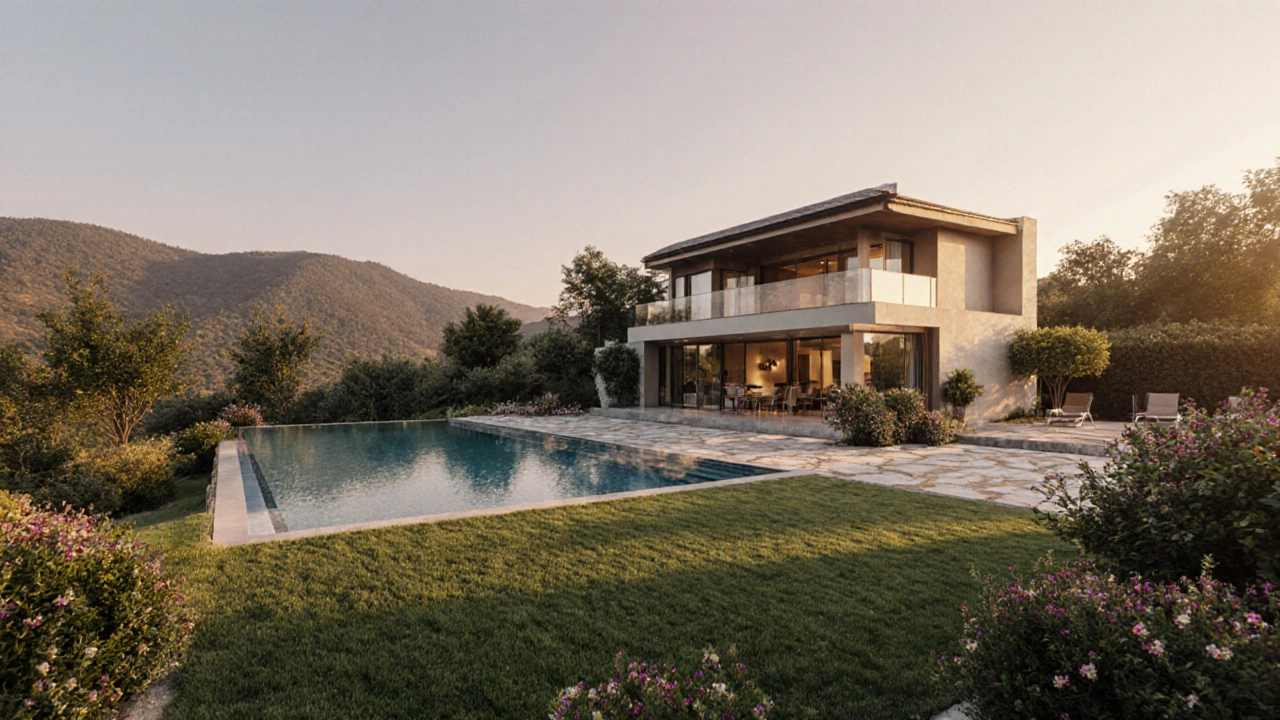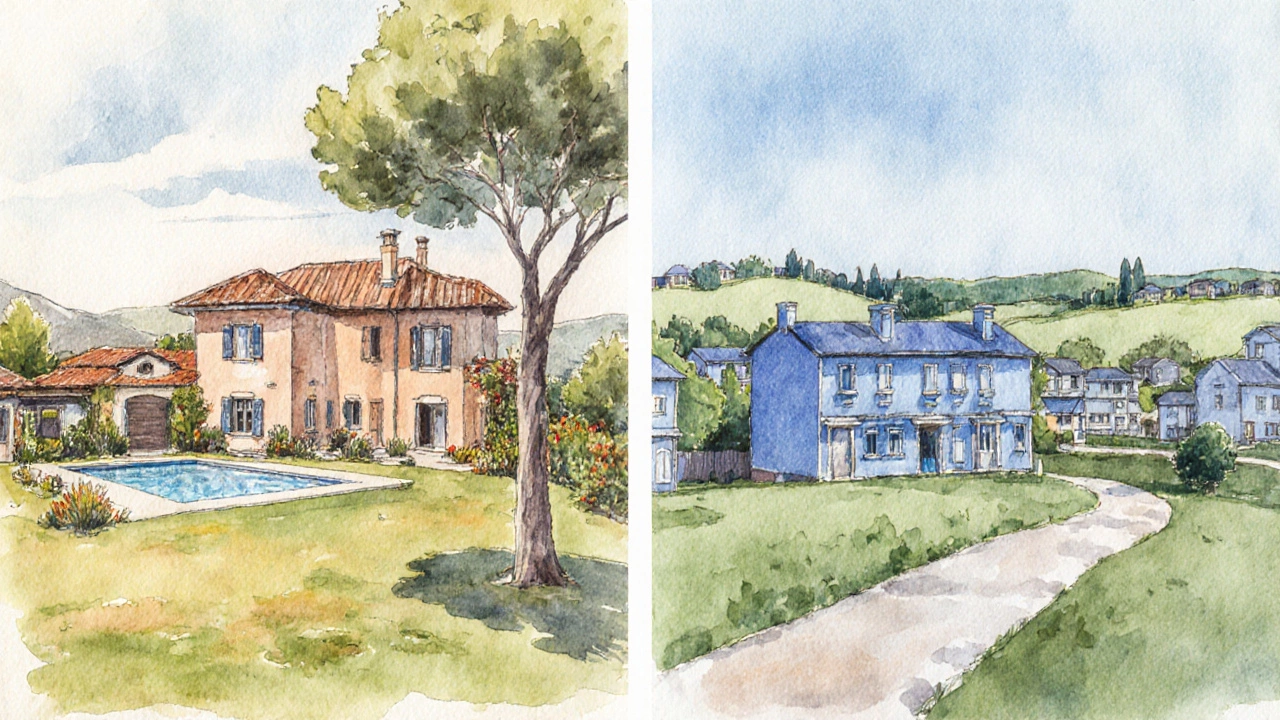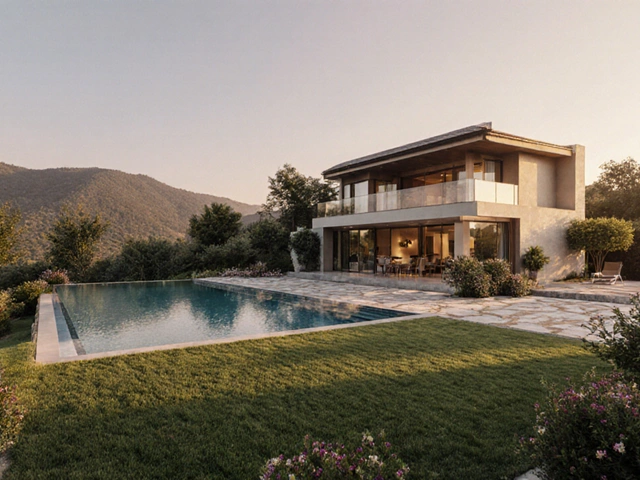Villa vs Townhouse: Key Differences Explained

Villa vs Townhouse Cost Calculator
Calculate Your Monthly Costs
When you're looking at a villa, the first thing you notice is the sense of space and privacy. The same can be true for a townhouse, but the feel is often more community‑oriented. If you’ve ever wondered whether these two housing styles are interchangeable, you’re not alone. Below we break down the main characteristics, costs, and lifestyle implications so you can decide which fits your next move.
Key Takeaways
- Villas are typically detached, larger, and sit on bigger plots than townhouses.
- Townhouses share walls with neighbors and are part of a managed community.
- Ownership costs differ: villas often have higher land taxes, while townhouses may include HOA fees.
- Location and zoning rules heavily influence which type is available in a given area.
- Both can be good investments, but your lifestyle and budget will steer the choice.
What is a Villa?
Villa is a detached residential property that usually offers spacious living areas, private gardens, and sometimes additional amenities like a pool or guest house. Historically, villas trace back to Roman country houses, but today they appear in upscale suburban developments or coastal resorts. In Real Estate, a villa is classified as a premium Property type because of the land it occupies and the level of privacy it provides.
Typical features include:
- Standalone structure with no shared walls.
- Land size ranging from 0.2 to several acres.
- Multiple floors or expansive single‑story layouts.
- Customizable interior finishes and outdoor spaces.
What is a Townhouse?
Townhouse is a multifamily residential unit that shares one or two walls with adjacent units, often organized in rows or clusters within a planned community. In many markets, townhouses fall under the broader category of Row House, a historic term for similar attached dwellings. Today, townhouses are popular in urban and suburban areas where land is at a premium.
Key characteristics include:
- One or two shared walls with neighboring units.
- Usually two to three stories tall.
- Community amenities managed by a Homeowners Association (HOA).
- Standardized exterior design for cohesive streetscapes.

Core Differences Between Villas and Townhouses
Understanding the practical distinctions helps you match a property to your needs. Below are the most impactful factors:
- Privacy and Space: Villas are fully detached, offering more privacy and larger outdoor areas. Townhouses share walls, so noise transmission can be a consideration.
- Land Ownership: When you buy a villa, you own the land beneath the house. With a townhouse, you typically own the interior space but the land is part of a common parcel governed by the HOA.
- Maintenance Responsibility: Villa owners handle all exterior upkeep themselves, from roof repairs to garden care. Townhouse owners usually pay HOA fees that cover exterior maintenance, landscaping, and sometimes utilities.
- Cost Structure: Villas often command higher purchase prices due to larger lots, but they may have lower ongoing fees. Townhouses can be more affordable upfront, though HOA fees add to monthly expenses.
- Zoning and Regulations: Local Zoning laws dictate where villas or townhouses can be built. In dense urban zones, townhouses are more common; in sprawling suburbs, villas dominate.
- Financing: Mortgage terms are similar, but lenders may view villas as lower‑risk because of the land component, potentially offering better rates. Townhouses might have higher loan‑to‑value ratios due to shared ownership structures.
Side‑by‑Side Comparison
| Feature | Villa | Townhouse |
|---|---|---|
| Structure | Detached | Attached (shares walls) |
| Typical Lot Size | 0.2-5+ acres | 0.05-0.2 acres (shared) |
| Privacy Level | High | Medium |
| Maintenance | Owner‑handled | HOA‑covered (fees apply) |
| Typical Price Range (USD) | $800k-$5M+ | $300k-$1.2M |
| Common Locations | Suburban estates, coastal resorts | Urban infill, suburban master‑planned communities |
| Financing Considerations | Land equity often improves loan terms | HOA fees affect debt‑to‑income ratios |

Buying Considerations: Which Is Right for You?
Before you sign any contract, ask yourself these practical questions:
- Do I need a large private yard? If outdoor space for gardening, play areas, or a pool is a priority, a villa is the natural fit.
- Am I comfortable with shared walls? If you value community interaction and don’t mind occasional noise, a townhouse works well.
- What is my budget for upfront costs vs. ongoing fees? Villas require more cash upfront but may have lower monthly expenses. Townhouses balance lower purchase price with recurring HOA fees.
- How important is location? If you want to be close to city centers, townhouses often sit in walkable neighborhoods. Villas tend to be farther out, offering tranquility but longer commutes.
- Do I want to manage maintenance myself? Consider your lifestyle and time. DIY homeowners may cherish villa upkeep, while busy professionals often prefer HOA‑handled services.
Also, run a quick Construction Cost analysis: villas typically have higher per‑square‑foot construction expenses due to custom designs, whereas townhouses benefit from economies of scale in shared walls and standardized plans.
Common Misconceptions
Many buyers assume that a townhouse is just a cheaper villa, but the two differ fundamentally in ownership rights and community rules. Another myth is that villas always appreciate faster; in reality, market dynamics, location, and local Zoning changes can affect both types equally.
Finally, some think an HOA is a bad thing. On the contrary, a well‑run HOA can maintain property values and provide amenities that would be costly for a villa owner to furnish alone.
Frequently Asked Questions
Can I convert a townhouse into a villa?
Generally, no. Converting a townhouse to a detached villa would require major structural changes and new land acquisition, both of which are subject to strict zoning and neighborhood covenants.
Do townhouses have higher insurance rates than villas?
Insurance premiums depend on factors like building materials, location, and coverage level. Because townhouses share walls, they might have slightly lower structural risk, but HOA insurance can offset individual costs.
Is a mortgage for a villa more difficult to obtain?
Lenders often view villas favorably due to the land component, which adds collateral. However, the larger loan size can require higher credit scores and lower debt‑to‑income ratios.
What are typical HOA fees for townhouses?
HOA fees vary widely-ranging from $150 to $500 per month-depending on amenities, maintenance scope, and location. Always request a fee breakdown before buying.
Do villas have better resale value?
Resale potential hinges on market demand, land scarcity, and property condition. In high‑growth areas, villas often command premium prices, but well‑located townhouses can appreciate equally fast.









Write a comment